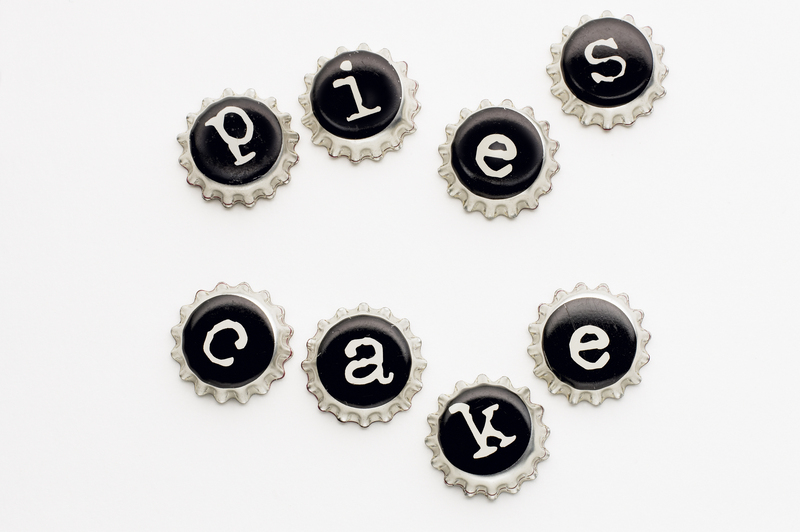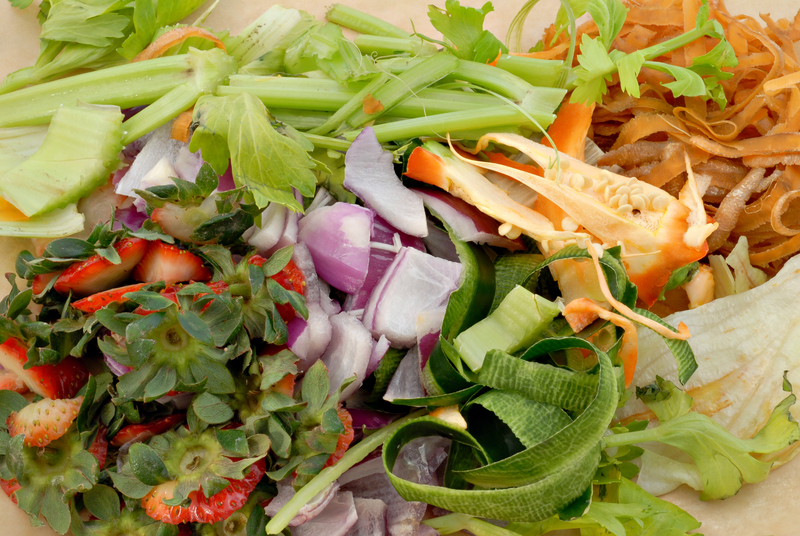Prep Your Pots and Pans for Eco-Friendly Disposal
Are your old pots and pans collecting dust in the back of your cupboards? Instead of tossing them in the trash, take a moment to consider eco-friendly disposal methods. Sustainable disposal of cookware not only benefits the environment but can also help reduce waste going to landfill and encourage resource conservation. In this comprehensive guide, we'll show you how to prep your pots and pans for eco-friendly disposal. Read on for expert tips, creative ideas, and best practices that will help you make greener choices with your old cookware.

Why Should You Dispose of Old Cookware Responsibly?
Every year, millions of pots and pans end up in landfills worldwide. Many of these items are made of metal, plastics, and non-stick coatings that can take hundreds of years to decompose, if at all. By making a conscious effort to prepare cookware for green disposal, you help to:
- Reduce landfill waste and environmental pollution
- Enable material recycling, saving natural resources
- Support upcycling and creative reuse
- Encourage a sustainable and circular economy
Let's dive into the step-by-step process of prepping and disposing of your old pots and pans in an environmentally friendly way. With the right approach, your discarded cookware can find a new life while minimizing its ecological footprint.
Assess the Condition of Your Old Cookware
Before you get rid of your unwanted pots and pans, it's important to evaluate their condition. This will help you determine the best disposal method - be it reuse, recycling, donation, or upcycling.
- Lightly Used Cookware: Minimal scratches, working handles, and intact surfaces.
- Well-Worn Cookware: Obvious signs of wear, minor warping, or peeling nonstick coating.
- Damaged or Unsafe Cookware: Severely warped, rusty, or non-stick surfaces that are flaking off.
Now, let's explore suitable eco-disposal options for each case.
Option 1: Reuse or Donate Usable Pots and Pans
Don't rush to the dump just yet. Many groups can make use of secondhand cookware:
- Local charities and shelters: Offer lightly used pots and pans to organizations aiding families in need, homeless shelters, or community kitchens.
- Online resale or giveaway platforms: Consider listing your cookware on platforms like Freecycle, Facebook Marketplace, Craigslist, or local "Buy Nothing" groups.
- Thrift stores: Goodwill, Salvation Army, and similar stores often accept gently used kitchenware.
Tip: Wash and dry your cookware thoroughly before donating. If possible, reassemble any detached parts, and stack sets together with reusable ties.
Option 2: Upcycle Old Cookware Creatively
Instead of disposing of your obsolete pans and pots, think outside the box with upcycling projects. Here are a few creative ways to give old cookware a second life:
- Garden planters: Drill drainage holes and fill old pots and pans with soil to create quirky flowerpots.
- Bird feeders or baths: Attach a sturdy handle and hang in the garden for wildlife use.
- Wall decor or kitchen storage: Clean up vintage pans and mount them for a rustic touch in your kitchen or as organizers.
- Craft projects: Use lids as chalkboards, or turn pans into clocks, candle holders, or decorative trays.
Get creative and extend the useful life of your cookware, reducing your environmental impact in the process.
When to Recycle Pots and Pans
If your cookware is no longer safe for food use or has been damaged beyond repair, recycling is your next best choice.
How to Prepare Pots and Pans for Recycling
Proper recycling depends on the material of your cookware. Most old pots and pans are made from:
- Stainless steel
- Aluminum
- Copper
- Cast iron
To prep cookware for eco-friendly recycling:
- Remove non-metal parts: Unscrew and detach any plastic, silicone, or wooden handles or knobs. These materials typically cannot be recycled with the metal base.
- Clean thoroughly: Remove food residue, oils, or burnt material--metal recyclers accept only clean items.
- Check for coatings: If your pans have Teflon or other non-stick coatings, ask your local recycling center if they will accept them--some non-sticks are not recyclable in standard facilities.
Important note: Nonstick coatings and mixed materials sometimes require special handling. Always call your local municipal recycling program for guidance on accepting coated cookware.
Find a Suitable Recycling Facility
- Check with your city's household recycling program to see if they offer curbside metal recycling.
- If not, search for scrap metal recycling centers in your area. These facilities accept metal cookware regardless of its condition.
- Some cookware brands offer take-back or recycling programs. Notable manufacturers and retailers may collect and recycle their own products--look up brand websites for details.
- For aluminum or copper cookware, contact your local scrap yard. These metals may even net you a small payment per pound recycled.
Recycling your old pans reduces raw resource demand and energy consumption, helping create a cleaner, greener future.
How to Dispose of Non-Stick Cookware Responsibly
Non-stick pans (Teflon or PTFE-coated) pose special recycling challenges due to their synthetic coatings. Most facilities do not accept non-stick or ceramic-coated cookware in standard recycling streams.
Tips for Green Non-Stick Pan Disposal
- Upcycle: Repurpose as planters, pet dishes, or organizers.
- Manufacturer take-back: Some brands, such as GreenPan or Calphalon, offer recycling through mail-back programs. Check with them before discarding.
- Specialized recycling: Some scrap yards will accept non-stick cookware but may require you to remove the coating first.
- Landfill as a last resort: If you must toss non-stick pans, wrap them in newspaper to contain any flakes and dispose of responsibly in your household waste.
Note: Non-stick coatings applied before 2013 may contain PFOA, a chemical linked to environmental and health risks. Handle very old non-stick pans with care, and prioritize safer disposal methods.
Eco-Friendly Cookware Disposal FAQs
Can I put my pots and pans in the recycling bin?
Typically, household recycling bins do not accept large metal cookware due to their size and mixed materials. Take them directly to a scrap metal facility or a designated recycling drop-off center.
Do thrift stores accept old pans?
Yes, provided they are clean and in safe, usable condition. Very worn, warped, rusted, or flaking pans are best sent to recycling or upcycling projects rather than donation centers.
What about cast iron?
Cast iron pans are extremely durable and often outlast non-stick or aluminum pans. If they're rusty or have buildup, try restoring them--see if a friend, family member, or community kitchen could use them. If not, cast iron is 100% recyclable as scrap metal.
How can I make sure my pans are recyclable?
Contact your local recycling authority for specific guidance. Remove non-metal handles, and confirm if nonstick coatings require additional steps. For specialty pans or those made from mixed materials, recycling centers will provide the most accurate advice.
Best Practices for Sustainable Cookware Choices
Once you've disposed of your cookware responsibly, consider choosing planet-friendlier cookware going forward. Here are some eco-smart tips for your next cookware purchase:
- Opt for uncoated stainless steel, cast iron, or copper pans for longevity and recyclability.
- Choose ceramic-coated or PFAS-free non-stick pans as safer alternatives.
- Support brands that offer recyclable packaging or take-back programs.
- Invest in quality over quantity; well-made pans last decades, reducing replacement waste.

Step-by-Step Checklist: Prep Cookware for Sustainable Disposal
- Gather all unwanted pots, pans & lids.
- Sort by condition: Reusable, recyclable, or upcyclable.
- Thoroughly clean each item.
- Remove non-recyclable parts: Plastic, wood, or silicone handles and knobs.
- Research appropriate local disposal options: Donation, recycling, or creative reuse.
- Drop off, mail in, or donate as needed.
This simple checklist makes it easy to manage your cookware waste responsibly.
Conclusion: Dispose of Pots and Pans the Eco-Friendly Way
It's easy--and rewarding--to prep your pots and pans for eco-friendly disposal. By embracing donation, upcycling, and recycling, you extend the life of your cookware or its materials, ultimately reducing your environmental footprint. Remember to always:
- Clean and prep cookware before donating or recycling
- Remove non-metal components for efficient recycling
- Seek out upcycling opportunities for your home or garden
- Check for manufacturer recycling or take-back programs
- Support and choose sustainable cookware for the future
Don't let your old pots and pans go to waste--let them go green! With a little extra effort, you'll help conserve resources, minimize landfill usage, and pave the way for a more sustainable kitchen.
